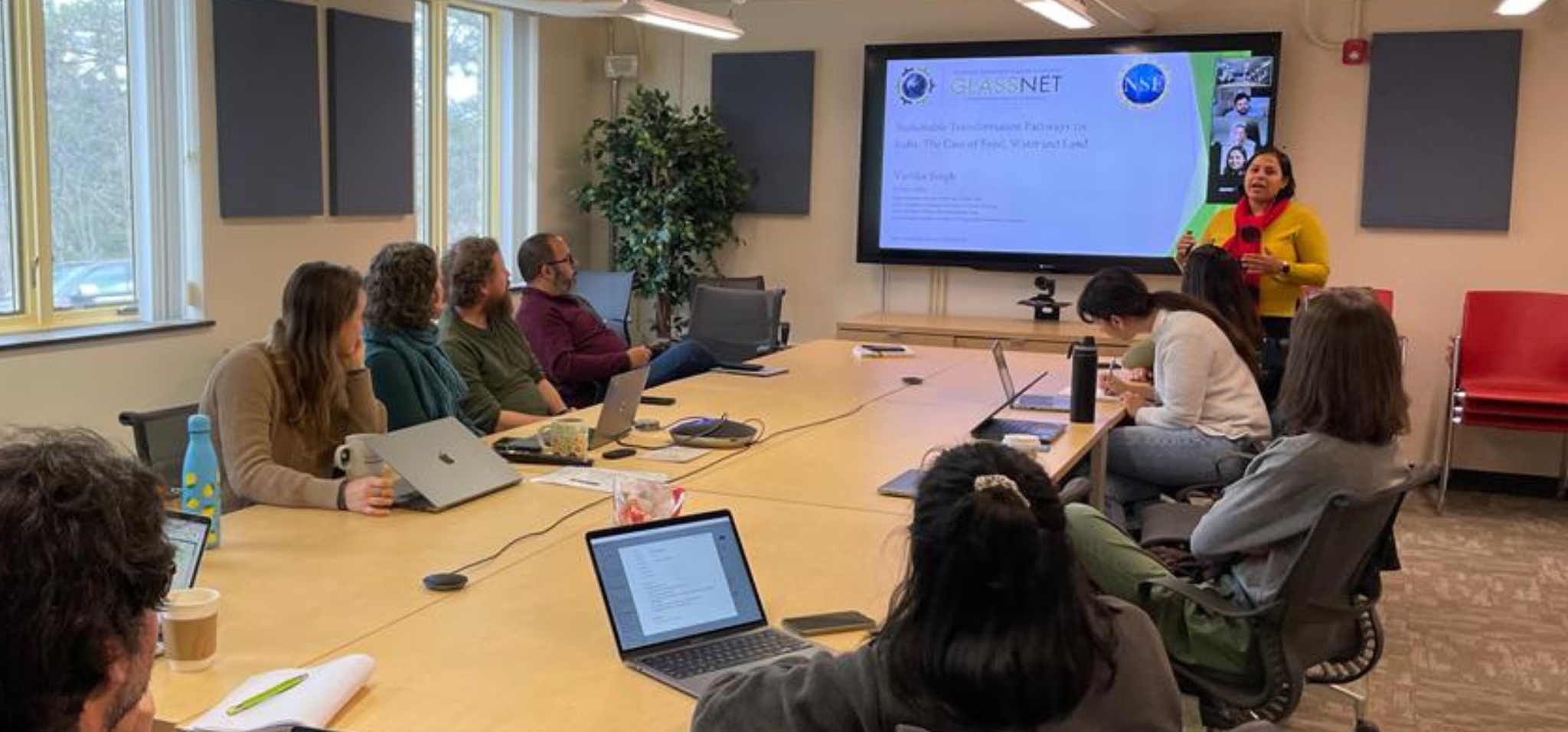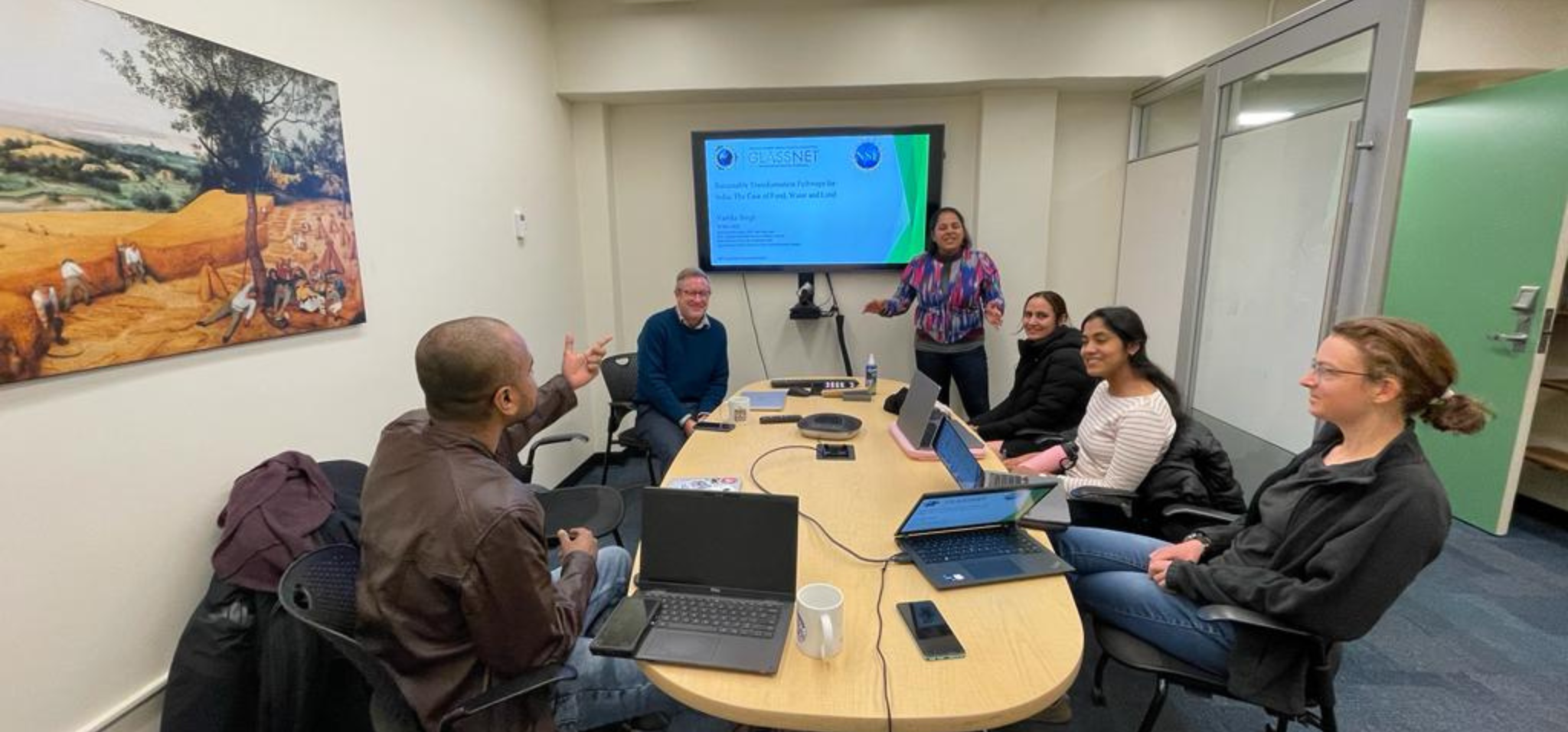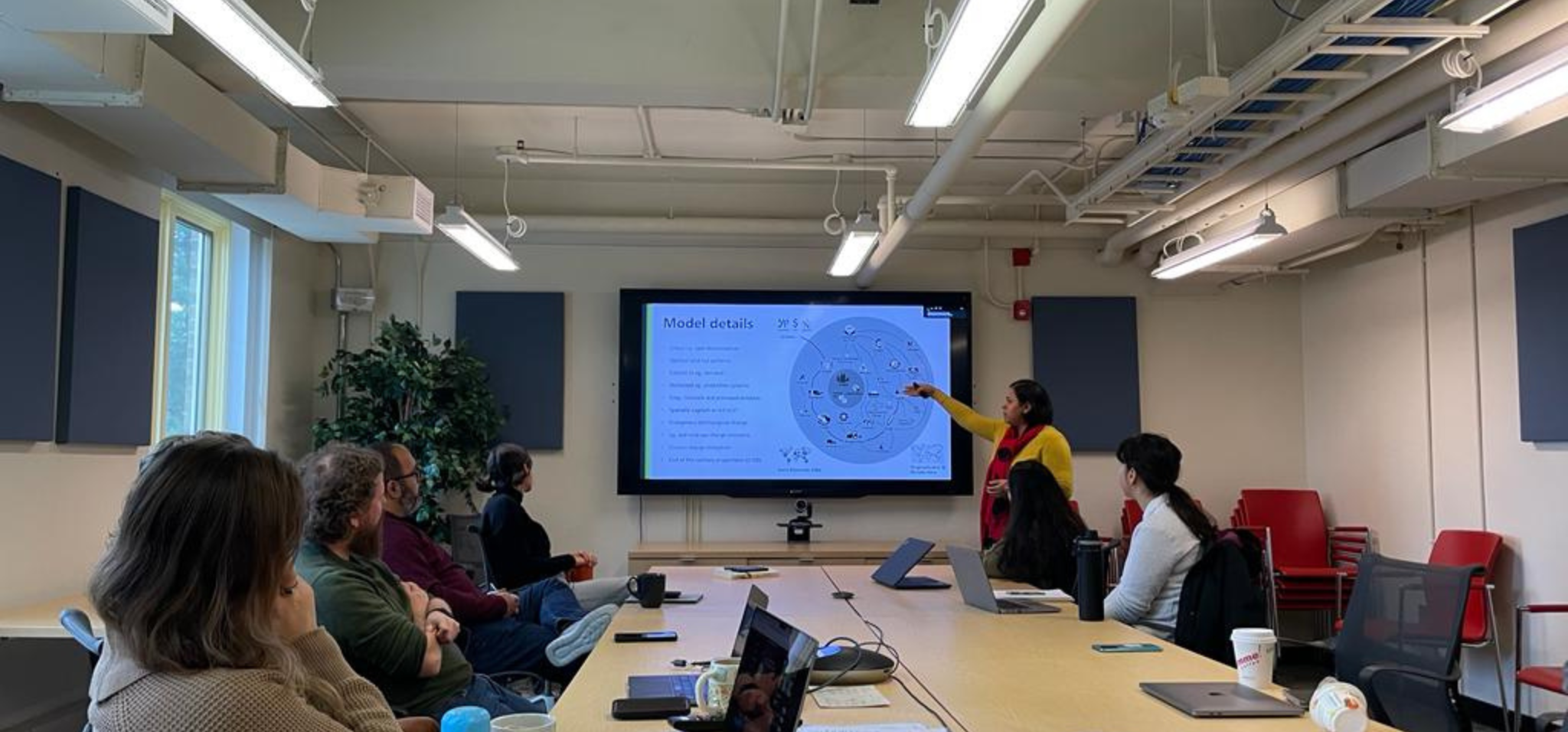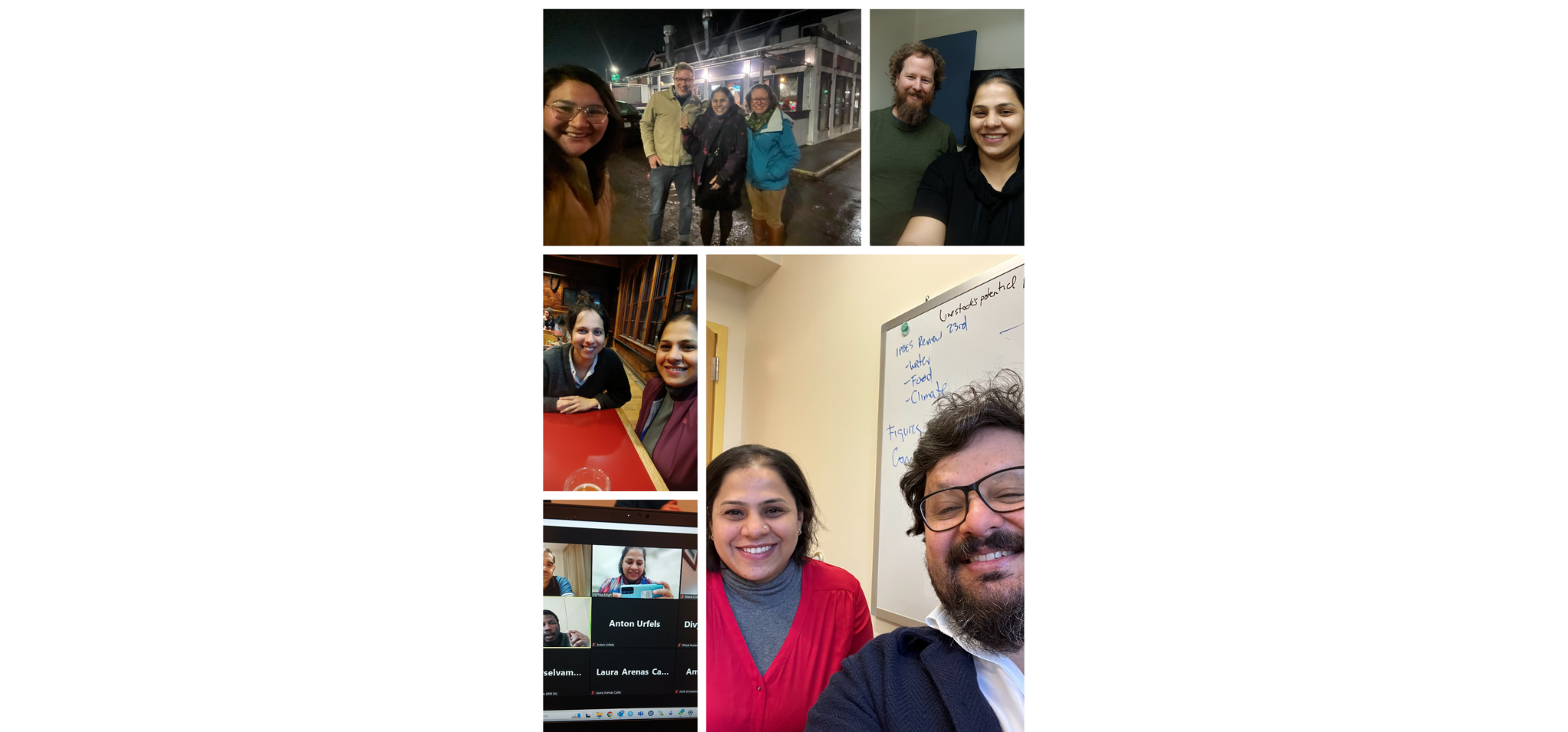
Author: Vartika Singh (IIM-A).
In the pursuit of advancing research in sustainable agriculture and global food systems, I had the opportunity to visit Cornell University as part of the Early Career Research Grant from GLASSNET (NSF AccelNet Grant #2020635).
GLASNEET Early Career Researcher Launch Award supports early career researchers for travel that will help launch new endeavors. This can be new collaborations, new research proposals or projects, new datasets, models, or methods, or new science-policy communications.
Here is a glimpse into my enriching experience:
Engaging with distinguished researchers
During my time at Cornell, I had the privilege of engaging with distinguished researchers, particularly within the Systems Agronomy for Global Development and Food Systems and Global Change groups under the College of Agriculture and Life Sciences. The visit was marked by productive interactions, knowledge exchange, and fruitful collaborations. I presented two case studies integral to my Ph.D. dissertation, focusing on water governance policy measures and dietary transitions in India. The presentations sparked insightful discussions, generating valuable feedback and suggestions for improved analyses and result presentations. The enthusiasm and engagement from both research groups underscored the importance of collaborative endeavors in addressing complex challenges.
Fruitful interactions and future collaborations
One of the significant highlights of my visit was the in-depth discussions with Dr. Andrew McDonald, the leader of the Systems Agronomy for Global Development group. Our conversation centered on integrating mixed methods into our research methodology, emphasizing the application of systems tools and global gridded crop models. The aim is to tackle substantial challenges in agri-food systems, particularly in South Asia, such as meeting the demands for food, feed, fuel, and fiber for a population of 10 billion while ensuring nutritional security and adapting to climate change. This aligns seamlessly with my research interests and expertise in the South Asian region.
The collaborative spirit extended to planning follow-up meetings with Dr. McDonald and his team during their upcoming visit to Delhi. We envisage organizing an event focusing on methodological approaches and collaborations with other modeling groups like GLASSNET. This initiative aims to foster a dynamic exchange of ideas and practices, contributing to the enhancement of research methodologies and analytical frameworks.

Presentation to the Systems Agronomy for Global Development group at Cornell is led by Associate Professor Andrew McDonald.
Equally enlightening was my discussion with Dr. Mario Herrero, head of the Food Systems and Global Change group, focusing on my ongoing dissertation work. We explored the intricate relationship between regional dietary preferences and global analyses, with an emphasis on incorporating India-specific case studies. Our conversations extended to future endeavors, including modeling country-based diets and contributing to global discussions, such as the EAT-Lancet 2.0 report.
The outcomes of these interactions were not only constructive suggestions for refining existing analyses but also the initiation of plans for future collaborations. Scheduled follow-up meetings with Dr. McDonald's team in Delhi and continued engagement with Dr. Herrero's team for model development and analysis underscore the commitment to long-term collaborative efforts. We have also proposed a session for the upcoming 5th Open Science Meeting of the Global Land Programme 2024 which has been accepted.

Presentation to the team of Food Systems and Global Change led by Dr. Mario Herrero.
Fostering connections
The collaboration resulted in enhancing my personal networks, which will prove beneficial as I pursue my future career goals.I had conversations with several graduate students, helping us forge networks and friendships. Ultimately, this visit to Cornell University reinforced the value of partnerships and networking in the scientific community. The exchange of ideas, collaborative discussions, and the establishment of follow-up meetings are pivotal in driving forward evidence-based policies and climate solutions. As we look ahead, these collaborations will play a crucial role in shaping the future of research methodologies, contributing to policy evaluations, evidence synthesis, and model inter-comparisons for sustainable agriculture and global food systems.

Other individual meetings combined with Dr. Andrew McDonald, Cynthia Mathys, Dr. Carlos Gonzalez Fischer, Jasmin Wehner (Graduate student) and Dr. Mario Herrero.